Andy Sanborn’s attorneys criticize Lottery Commission's investigation
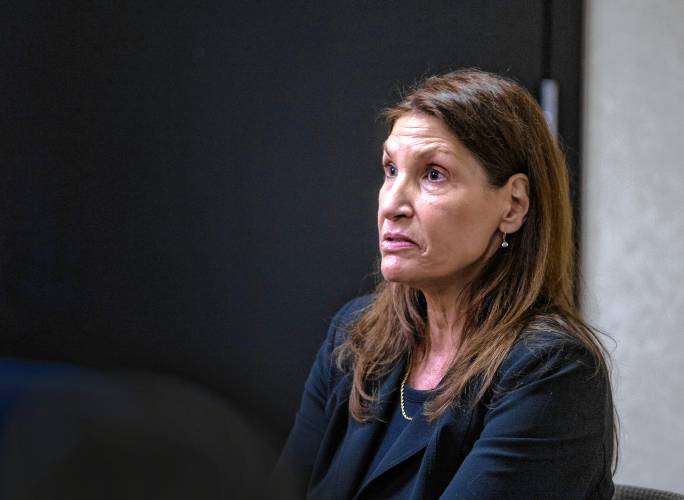
The Commissionâs only witness, Leila McDonough, auditing administrator, testified Monday at the Lottery Comission hearing concerning Andy Sanbornâs casino license. CONCORD MONITOR – GEOFF FORESTER
| Published: 12-12-2023 4:21 AM |
In his absence, Andy Sanborn’s legal team defended his credibility during Monday’s hearing primarily by asserting the Lottery Commission accusations were based on a careless investigation that failed to present complete facts.
“This case is based on a sloppy and incomplete investigation by the Commission,” said lawyer Mark Knights. “They didn’t take some of the most basic investigative steps to extend the investigation.”
The Lottery Commission’s lawyers outlined four grounds for the possible revocation of Sanborn’s casino license, including the fraudulent acquisition of $844,000 in COVID relief funds not intended for casinos; the misappropriation of those funds for personal expenses, including purchasing a Ferrari and two Porsches and calling them business-related; exceeding documented lease amounts with loan funds for rent; and the failure to uphold accurate financial records and internal controls.
Not only does Sanborn own the Concord Casino and Draft Bar, but he also serves as landlord to himself through Best Revenge LLC, which owns the building that houses both businesses.
“This case is about the public’s confidence in charitable gaming and accountability,” the commission’s attorney Jessica King said in her opening statement. “In New Hampshire, it is a privilege, not a right, to hold a gaming license.”
Sanborn stands to lose his gaming license and be barred from participating in the state’s charitable gaming business model based on the outcome of the hearing. Both Sanborn and his wife, State Representative Laurie Sanborn, who also operates the Concord Casino, were absent from the proceedings. Sanborn’s health was cited for his absence.
Sanborn’s attorneys, Knights and Zachary Hafer sifted through audit reports and financial documentation to counter the allegations before hearings examiner Michael King from the Department of Safety.
Knights said that Sanborn filled out the application for COVID funds on the advice of a consulting professional, Mike Evans, who was interviewed by Sanborn’s attorneys but not the commission’s.
Article continues after...
Yesterday's Most Read Articles
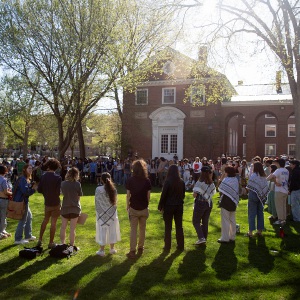 Dartmouth administration faces fierce criticism over protest arrests
Dartmouth administration faces fierce criticism over protest arrests
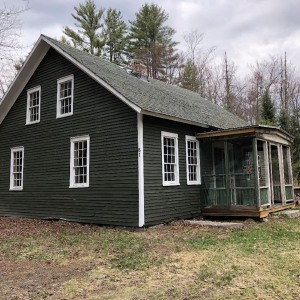 Hanover house added to New Hampshire Register of Historic Places
Hanover house added to New Hampshire Register of Historic Places
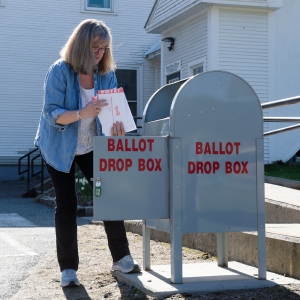 Sharon voters turn back proposal to renovate school
Sharon voters turn back proposal to renovate school
SBA loan applications are complicated and Win Win Win LLC listed as a “charity consultant business” further muddies the matter, said Knights.
Pointing to another flaw in the investigation, Knights said the commission did not interview anyone at the Small Business Administration, the entity that would have been defrauded, and no one from that agency was present at the hearing.
The commission’s only witness, Leila McDonough, the Lottery Commission’s auditing administrator, acknowledged that gaming rooms across the state often exhibit inaccuracies in their financial reports. However, she noted that Sanborn’s casino presented more concerning entries and inaccuracies than others.
For instance, the COVID funds were misclassified as coming from the Paycheck Protection Program, not the Economic Injury Disaster Loan, and the bookkeeping sometimes lacked necessary details.
Sanborn also received $1,000 from the New Hampshire Main Street Relief Fund, but that wasn’t recorded in the books, said McDonough.
“My feeling is that if it was something that could be nefarious to the auditor or the New Hampshire Lottery Commission, it was made to look very nebulous,” said McDonough.
She said several attempts to give Sanborn a chance to rectify the mistakes were frustrating.
“He has been the most difficult and challenging to work with,” she said. “He doesn’t seem to think that the rules and regulations apply to him.”
She said Sanborn doesn’t want to play by the rules.
“He’s gone to the governor. He’s gone to my boss. He’s gone to my boss’s boss. He’s gone to my boss’s boss’s boss,” McDonough said. “He wants to have his way and I just want compliance. I don’t want to fight with him.”
McDonough said the rent charged to charities was also an oddity in Sanborn’s casino operations. Sanborn charged different rent amounts to different charities and the rent amounts charged were also much higher than other casinos in the state.
The second witness called near the end of the day Monday was Richard Maloney, a certified public accountant who did a forensic analysis for Sanborn. Maloney’s testimony will continue Tuesday.
While Sanborn is in a legal battle with the Lottery Commission, his business, Concord Casino on Main Street in Concord shows no signs of slowing down. It continues to remain open until 1 a.m., seven days a week. On average it takes in about $2,000 a night in winnings. Sanborn is also the subject of two criminal investigations by both state and federal authorities. He was approved by the Concord Planning Board to open a larger gaming and entertainment facility on Loudon Road, but those plans are being challenged in court.
Sanborn’s casino license is set to expire on Dec. 31.

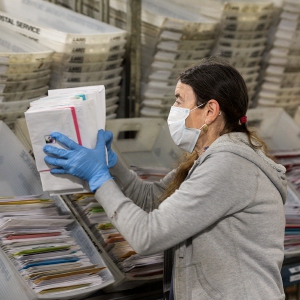 Plan on track to ship Upper Valley mail to Connecticut for sorting
Plan on track to ship Upper Valley mail to Connecticut for sorting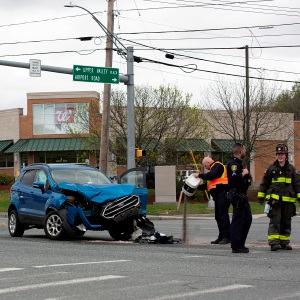 West Lebanon crash
West Lebanon crash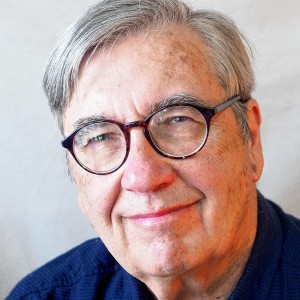 Over Easy: On bread, buttered popcorn and big sandwiches
Over Easy: On bread, buttered popcorn and big sandwiches
